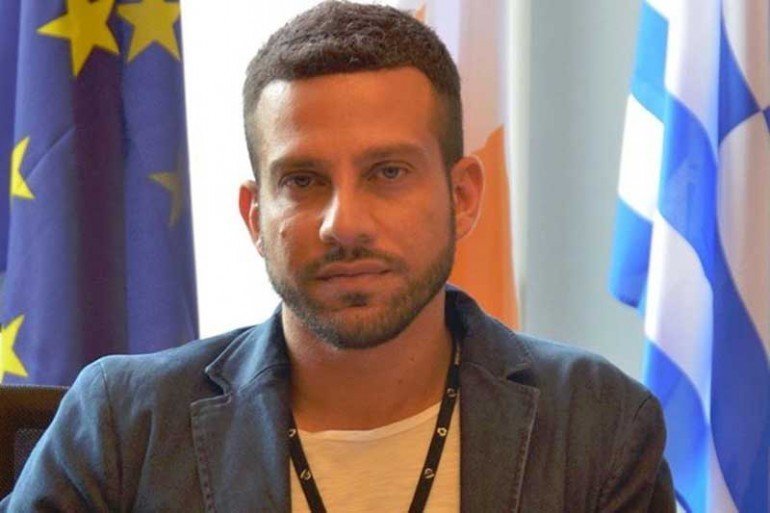The Holy Synod decided on Thursday to welcome back to the church controversial theologian Andreas Pitsillides, who had been excommunicated in 2015 over differing views with the church, then led by late Archbishop Chrysostomos II.
The decision was taken during a lengthy session of the Holy Synod, which lasted for well over three hours.
Pitsillides had also been invited to the meeting, where he responded to a series of questions that were linked to his 2015 excommunication. He had been banished from the church after a spat that had broken out with Chrysostomos II.
The Synod announced that Pitsillides reformed before the Holy Synod his previous positions for which the penalty of excommunication had been imposed on him.
According to Synod announcement, Pitsillides declared absolute adherence to the faith and doctrine of the church, and expressed his regret because, as he said, his unexplained behaviour caused the outrage among the faithful.
“The Holy Synod, following his remorse and repentance, lifted the excommunication, restoring him to the position of a member of the church, able to partake of its sacraments,” the chief secretary of the Synod said.
In 2015, a five-member council made up of now Archbishop Georgios, who was then Bishop of Paphos, Bishop of Tamasos Isiah, Bishop of Trimithounda Varnavas, Bishop of Karpasia Christoforos and Bishop of Kiti Nektarios voted to excommunicate the theologian.
After presenting his views and answering questions on various issues before the committee, Pitsillides’ arguments were found to deviate from Orthodox teachings.
The synod committee, after also studying Pitsillides’ views, had said it found misbeliefs, intentional misrepresentation, ambiguous interpretations and derisive references on many issues, such as abortion, confession, communion, homosexuality and others.
The committee had said Pitsillides’ removal from the church would remain in force until such time as he “recovers, renounces his falsehoods and misbeliefs, and begs for God’s mercy”.
With the enthronement of the new archbishop in late 2022, rumours began to circulate of lifting the excommunication of Pitsillides.
The theologian had also sent a letter, reports said, to be welcomed back to the church.
However, this was not Pitsillides first attempt to have his excommunication lifted, as back in 2019 he had sent a letter the Synod requesting to have the ban removed.
The petition was, however, unsuccessful as the Synod decided Pitsillides did not retract his positions, which had gotten him excommunicated.
The spat that had led to his excommunication broke went then Archbishop Chyrsostomos II had called on the heads of the Orthodox church to “condemn homosexuality.”
Commenting on the issue, Pitsillides, also a former MEP, had said: “For the umpteenth time I publicly condemn as a human, as a theologian and mainly as a Member of the European Parliament the racist and homophobic statements made by the Archbishop of Cyprus.
“I emphatically stress these are clearly against the spirit of the Gospel of love of Christ and certainly violate all European and international treaties protecting human rights against any form of discrimination based on race, gender, religion and sexual orientation.”
On Thursday, the Synod also examined the issue of Pagratios Meraklis, who is a former priest that was accused of homosexuality in the late 90s and put on sabbatical by Archbishop Chrysostomos I.
They decided to partially lift his ban and allow him to conduct some church services that do not involve sacraments.
Speaking after, theologian Theodoros Kyriacou said that these services include some Holy Week services, where communion is not given, and the start of Sunday church services, where prayers are read.
Pangratios will not be able to conduct communion, baptisms, unction, confessions, or weddings, as these are viewed as holy sacraments of the Orthodox church.
In a reaction to this decision, Pagratios said: “In essence this is not the removal of the sabbatical, it is the blessing of the Holy Synod to perform some services that I could not perform until today.”
He said that he was satisfied with this decision and that now he will request permission from the area’s bishop or Archbishop to conduct some services, like funerals.







Click here to change your cookie preferences